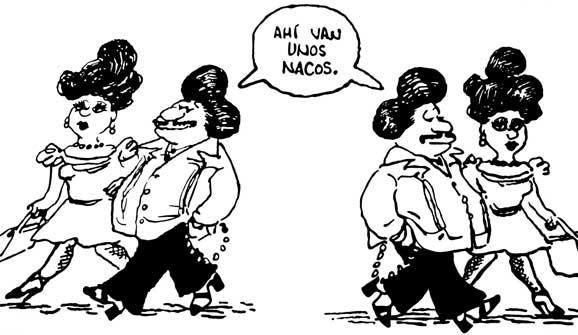
From the 1940s through the 1960s, it was considered the classiest night club in Mexico City. Chilangos of a certain age still have pictures of their parents taken at El Patio, snapped by a strolling photographer, amid the white tablecloths, waiters in tuxedos and bottles of sparkling wine chilling in ice buckets. Not only did Mexico's most famous performers play here, but when the peso was relatively strong, so did international performers like Edith Piaf, Josephine Baker and Charles Aznavour. It has been closed for the last twenty years or so, perhaps waiting for some enterpreneur to come along to tear it down and build a condominium. As it is around the corner from the Ministry of the Interior, some might think of it as a nicer place to visit than to live.







